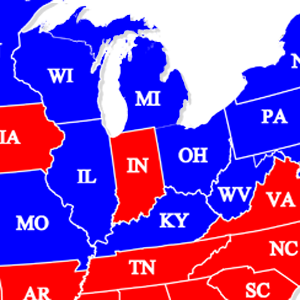Union Bosses Threaten Elected Officials -- Toe The Big Labor Line
Leo Gerard, the boss of the United Steelworkers Union, warned Democrats not to compromise at all on the fiscal cliff. Gerard said any Democrats who…
Leo Gerard, the boss of the United Steelworkers Union, warned Democrats not to compromise at all on the fiscal cliff. Gerard said any Democrats who…

Among Tibetan monks, self-immolation might have its supporters but Americans don’t seem to find the idea useful. Unless, figuratively speaking, you are a forced unionism militant. News that Hostess has ceased doing business and eliminated over…

Despite denials from Big Labor apologists, it has become clear that the clean up efforts from Hurricane Sandy have been hampered by compulsory unionism rules in the Big Labor Apple. Fox Business reports that out-of-state workers were asked to join…

[media-credit name="| The National Right to Work Committee®" align="alignright" width="300"][/media-credit]Big Labor's coffers of forced union dues money was unable to permanently kill Right to Work in Michigan. Frank Beckman outlines who the union bosses picked a fight and lost despite spending $50 million. Their brazen efforts have set the stage for moving forward with Right to Work legislation in the state: Michigan voters issued a stinging rejection of state labor unions during Tuesday's elections, refusing to approve a single one of the ballot initiatives to which the big unions committed about $50 million dollars in support. The votes weren't even close, especially on labor's biggest target, Proposal 2, a constitutional amendment that would have given public sector labor unions unprecedented power and prohibited the future adoption of Right-to-Work legislation in Michigan. Reviews of labor strategy, crafted by Bob King's United Auto Workers union, will analyze whether the investment of about $50 million to push the proposals could have been used to focus on candidates instead.

[media-credit name=” ” align=”alignright” width=”150″][/media-credit]From the November 2012 issue of the Capital Research Center’s Labor Watch: Battle Plan of the Shadowbosses: The strategy to unionize government employees who aren’t government employees By Mallory Factor with Elizabeth Factor (PDF here)…
Union bosses are wasting no time in trying to engineer their spoils from the president’s re-election victory. The Wall Street Journal reports when asked, Mr. Trumka said he also wants labor laws revamped … though he wouldn’t be more specific or…

[media-credit name=” ” align=”alignright” width=”150″][/media-credit]According to NewsMax, Terry Miller, director of the Center for International Trade and Economics at the Heritage Foundation knows why some states struggle while others are booming — Right To Work freedom: “He points out that the 23…

[media-credit name=” ” align=”alignright” width=”150″][/media-credit]According to NewsMax, Terry Miller, director of the Center for International Trade and Economics at the Heritage Foundation knows why some states struggle while others are booming — Right To Work freedom: “He points out that the 23…
Should President Obama be re-elected, his thank you note to the union bosses will come in the form of legislation, according to AFL-CIO boss Richard Trumka: AFL-CIO President…